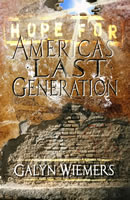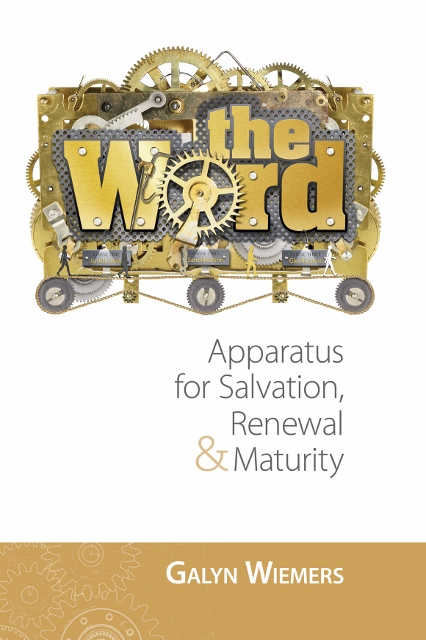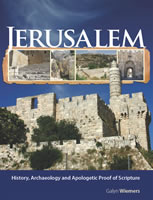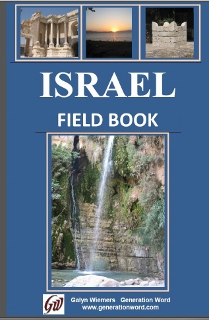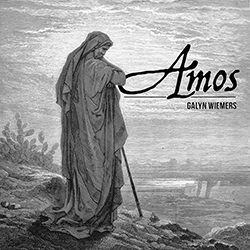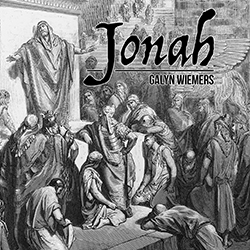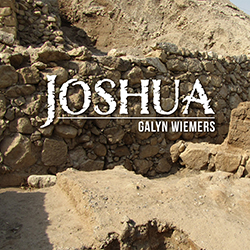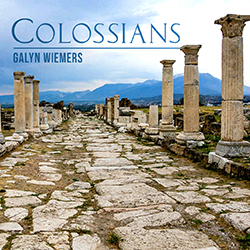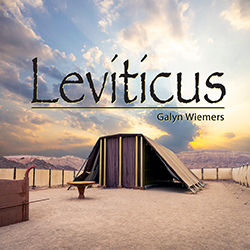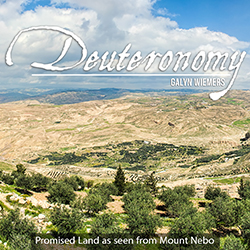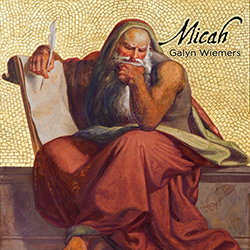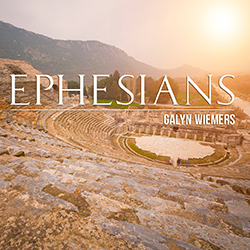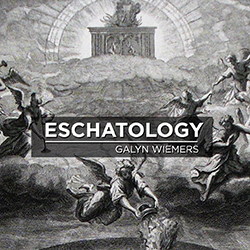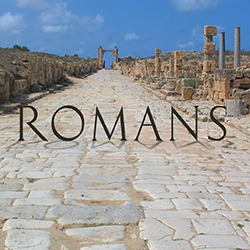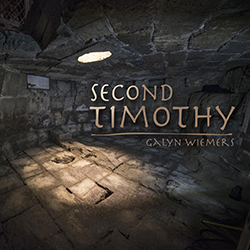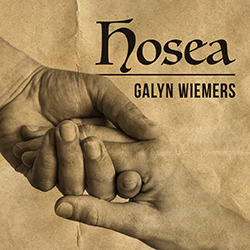
Arad
by Galyn Wiemers, Generation Word
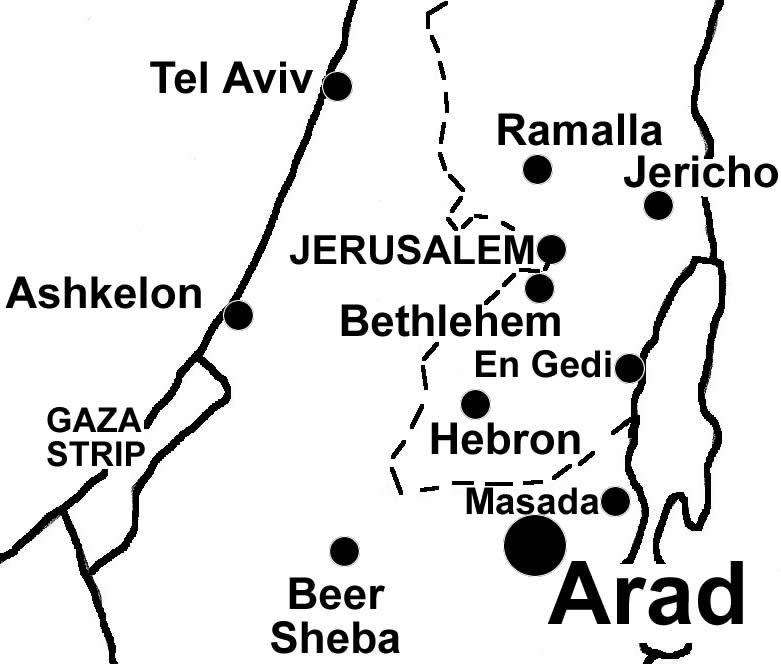
Arad in the Bible:
Numbers 21:1-3, Arad was a Canaanite stronghold that prevented Israel from moving north. The king of Arad was defeated after he attacked Israel near the end of their 40 years in the wilderness. Israel destroyed the local cities and named the area Hormah or “destruction.”
Judges 1:16, The Kenites, descendants of Jethro, Moses’ father-in-law, moved from Jericho to Arad.
Arad set in the eastern Negev and monitored the road that connected the hill country of Judah to Edom. Eighteen miles NE of Beersheba. In the Early Bronze Age (3300-2300) Arad was a large, fortified city 30 acres in size. Arad reached it peak 800 years before Abraham with a population of 2,500. At the end of the days of the Judean kings in the Iron Age Arad was a small fortress.
Ruth Amiran and Yohanan Aharoni excavated the city in 1962. The walls from the Early Bronze Age can be seen with the remains of semi-circular towers attached to them. Israel rebuilt the city over the Bronze Age site to protect its border with Edom. Israel’s city was basically a courtyard encircled with residential buildings. Solomon built a fortress here. This fortress contains the high place, water system, storehouses and homes. Over 100 ostraca (potsherds with writing) with Hebrew inscriptions where found here. One said “House of Jehovah” and a second mentions the King of Judah and Edom’s threat. The Edomites destroyed Israel’s Arad fortress. Excavations at Arad uncovered a complete temple made similar to the Jerusalem temple. This temple would be one of the high places of worship forbidden in Scripture, but still used for a couple hundred years. The altar, the outer court, the holy place and the most holy place can be seen.
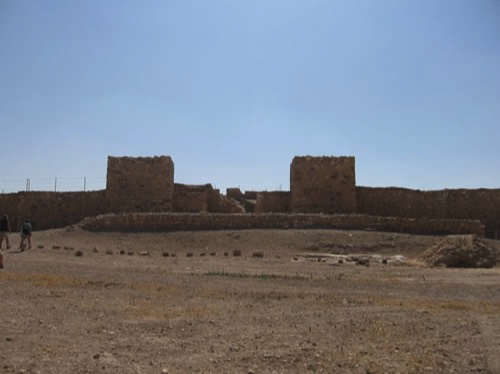
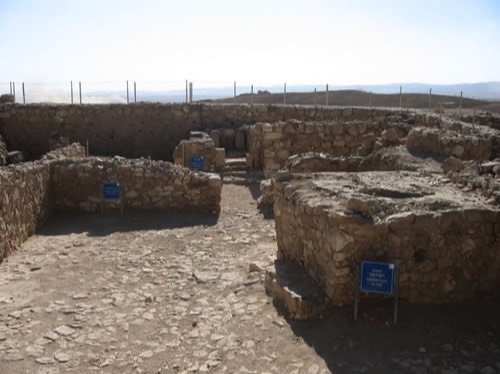
This picture is taken from the outer court with the altar being the square formation to the right. There is a stone slab on top. This had been covered with dirt around 701 BC during Hezekiah's reform.
The little opening in the wall behind the altar leads into a long room which would be the
holy place with the lamp stand. The Most Holy Place is up the four steps into the little room in the back.
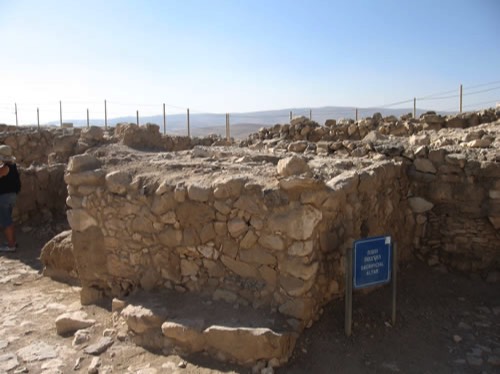
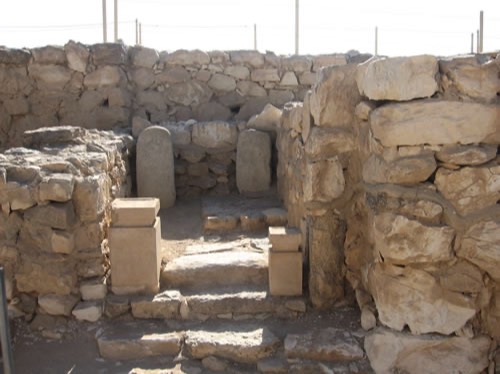
The two stones in the back are two deity stones. One is for Yahweh and the other is for his wife, Asherah (Astoroth). Pagan religion and thinking had crept into the true worship of Jehovah.
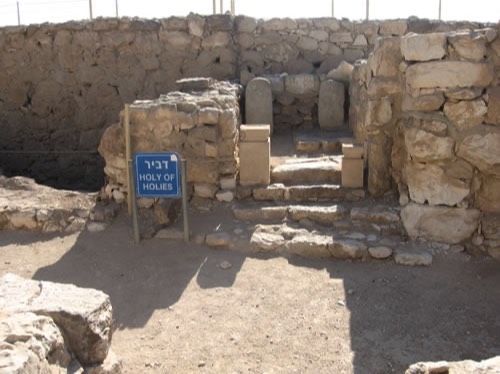
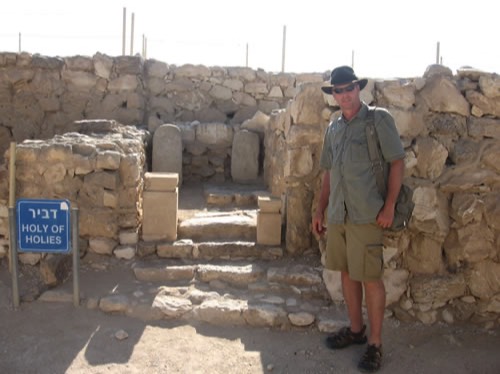
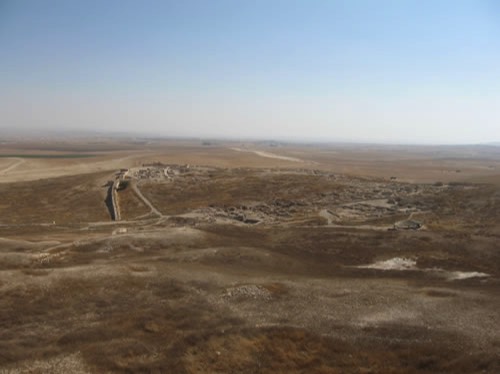
Below are photos of this lower city. This part of the city dates back to 2800 BC.
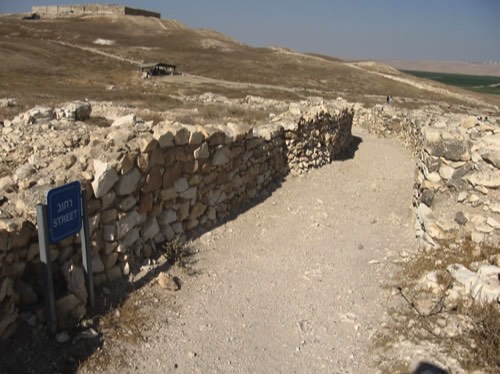
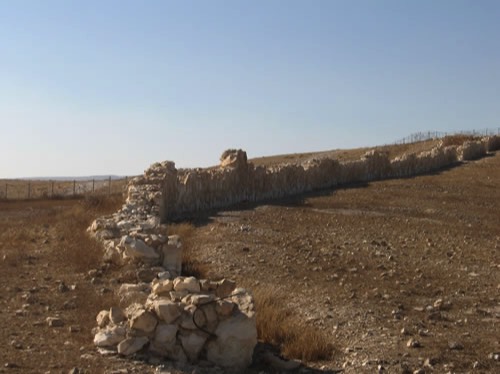
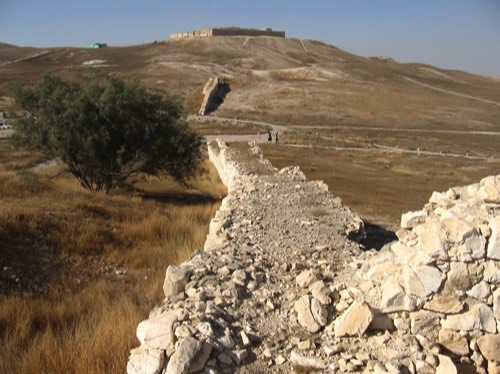
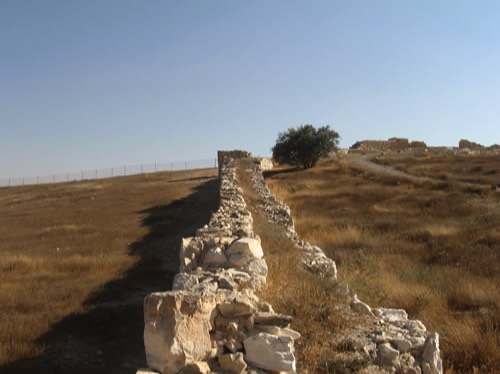
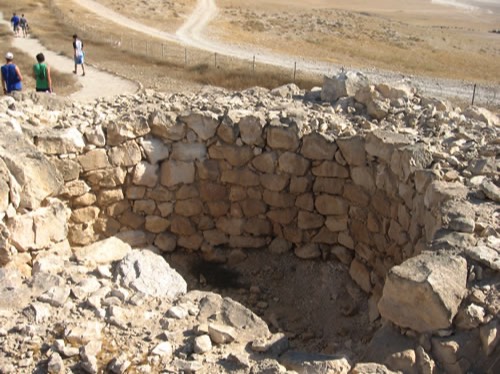
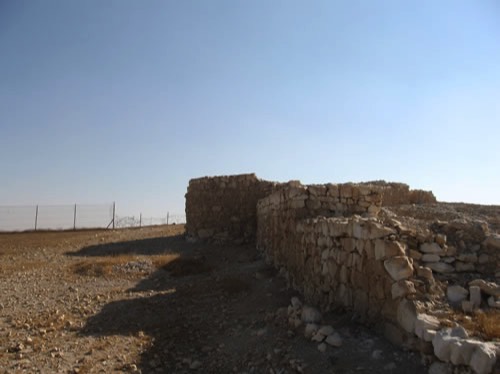
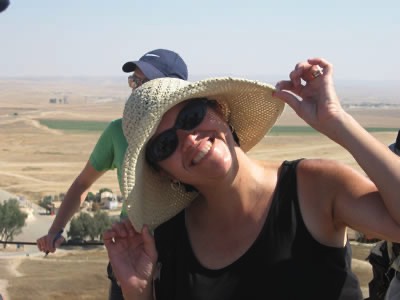
Generation Word Provides:

